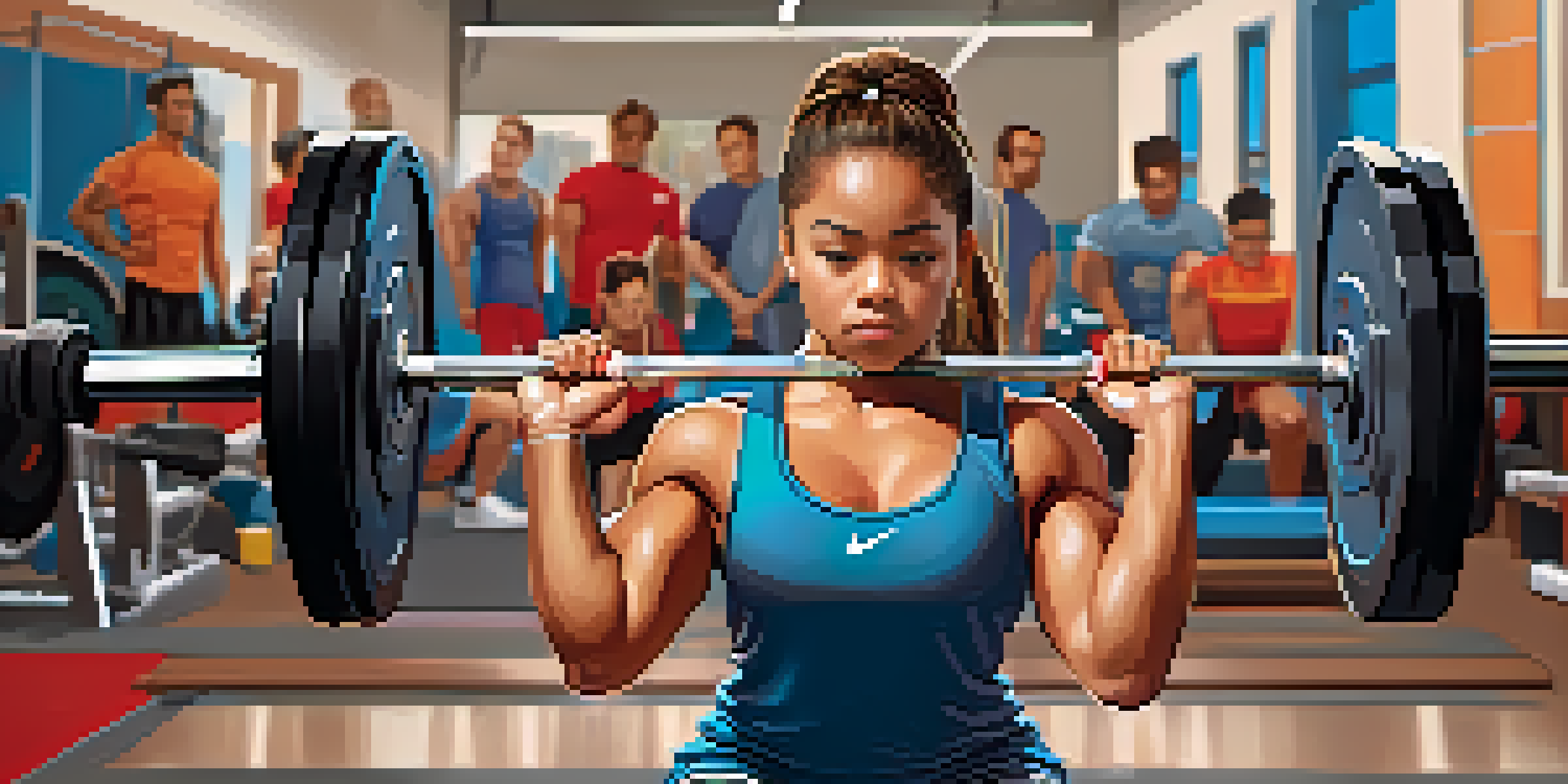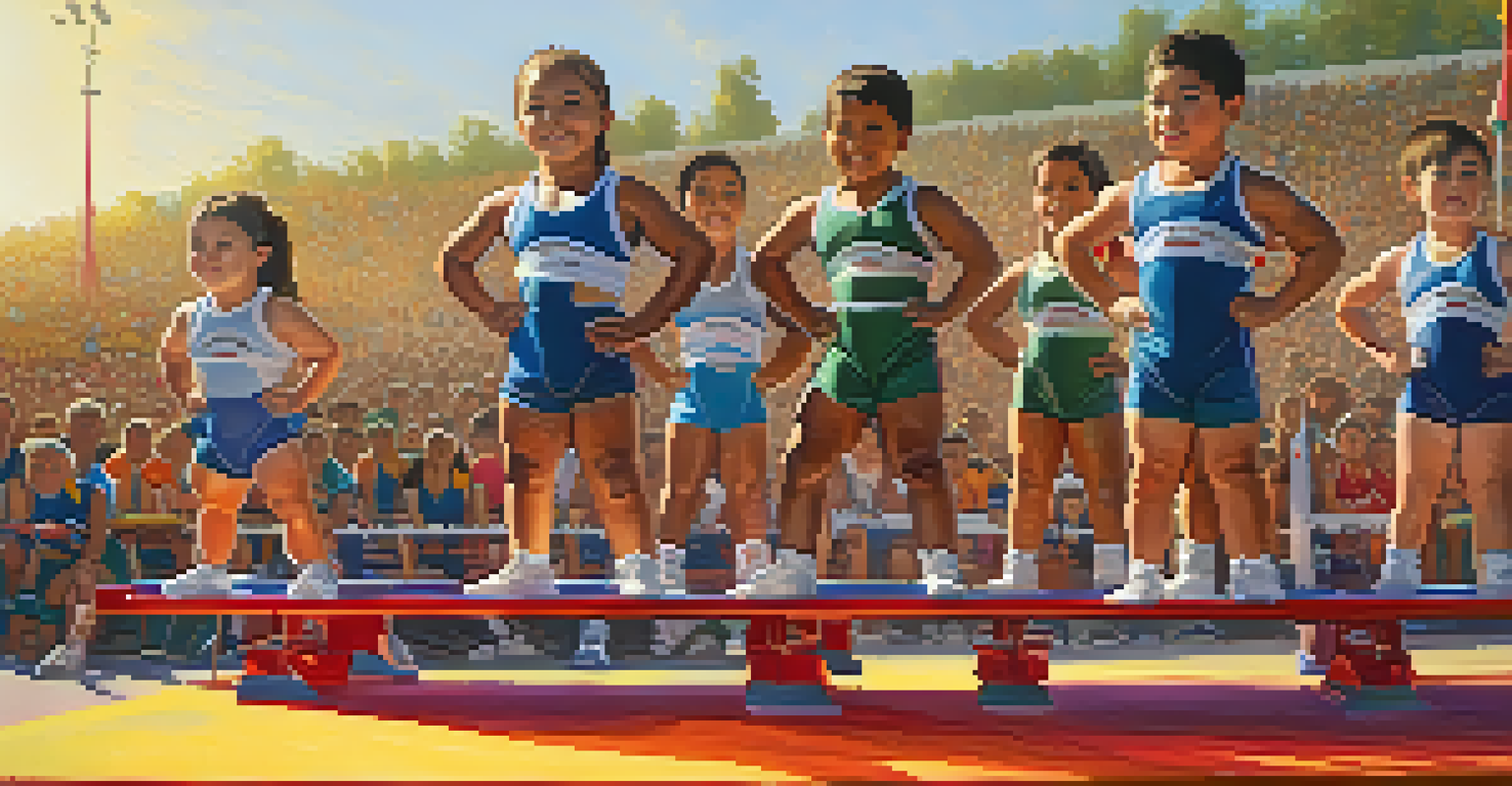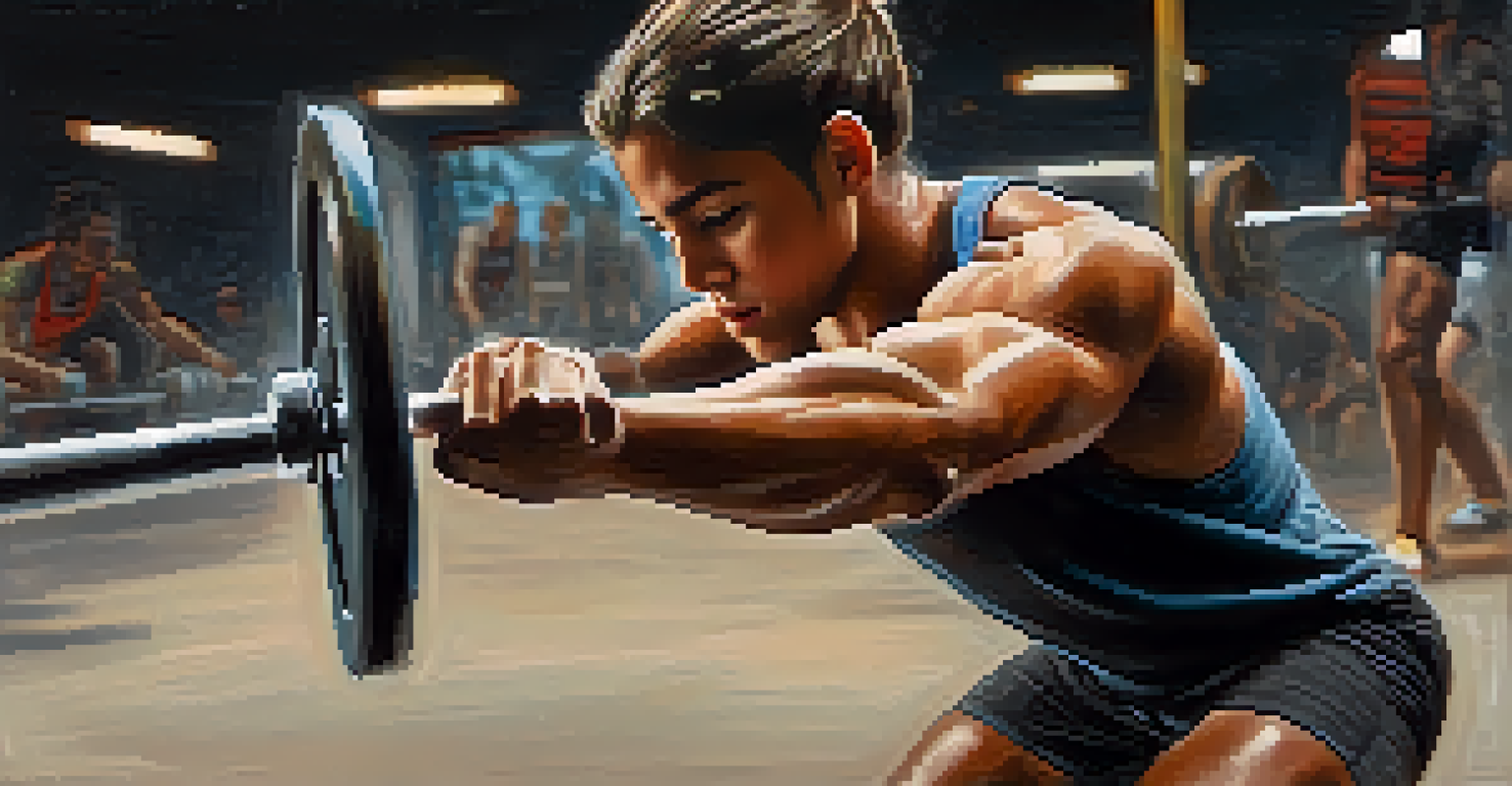Mental Preparation for Youth in Competitive Powerlifting

Understanding the Importance of Mental Preparation
Mental preparation is a crucial aspect of competitive powerlifting. Just like physical training, your mind needs to be conditioned to handle the pressures of competition. Athletes often focus on strength and technique, but overlooking mental readiness can be a significant oversight.
The mind is everything. What you think you become.
For young lifters, building a strong mental foundation can enhance performance. It helps them stay focused during lifts, manage anxiety, and maintain motivation throughout their training. Understanding how to mentally prepare is just as essential as mastering the squat or deadlift.
By prioritizing mental preparation, youth powerlifters can create a competitive edge. They’ll not only lift better but also enjoy the journey, fostering a positive attitude towards challenges in and out of the gym.
Setting Realistic Goals for Success
Setting realistic and achievable goals is a fundamental step in mental preparation. Goals give athletes a clear direction and help them measure progress. For young lifters, this could mean focusing on improving their form or gradually increasing their weights over time.

Moreover, breaking larger goals into smaller, manageable milestones can help maintain motivation. Celebrating these small victories, like hitting a personal best in practice, builds confidence and encourages continued effort. This approach keeps the training process enjoyable and engaging.
Mental Prep Boosts Performance
Prioritizing mental preparation enhances focus, reduces anxiety, and fosters a positive attitude in young powerlifters.
As they achieve these goals, young lifters will develop a sense of accomplishment. This boosts their mental resilience, encouraging them to tackle even tougher challenges as they advance in their powerlifting journey.
Visualization Techniques for Enhanced Performance
Visualization is a powerful tool that can significantly enhance performance in powerlifting. This technique involves mentally picturing successful lifts before they happen, which helps athletes prepare for the actual event. For young lifters, this practice can reduce anxiety and build confidence.
Setting goals is the first step in turning the invisible into the visible.
To effectively use visualization, athletes should create a clear mental image of themselves lifting weights successfully. Imagining the entire process—from setting up for the lift to achieving it—helps reinforce a positive mindset. This practice not only prepares them mentally but also conditions their body to respond effectively.
Incorporating visualization into their routine can lead to better results on the platform. It teaches young lifters to focus their minds, making them more resilient and capable of handling the pressures of competition.
Developing a Pre-Competition Routine
A consistent pre-competition routine can help young lifters mentally prepare for their performance. This routine may include warm-ups, visualization, and breathing exercises, all of which can help reduce anxiety and enhance focus. Establishing a ritual before each competition creates familiarity, easing nervousness.
For instance, some athletes may listen to specific music or engage in light stretching before their lifts. These activities signal their brain that it’s time to compete, helping them transition into the right mindset. A well-thought-out routine fosters a sense of control over the competition environment.
Setting Goals Fuels Motivation
Establishing realistic, achievable goals helps young lifters track progress and maintain motivation throughout their training.
By sticking to their routine, youth powerlifters can feel more confident and ready to tackle the challenges ahead. This mental preparation not only promotes better performance but also encourages a positive outlook on competition.
Managing Competition Anxiety Effectively
Competition anxiety is a common experience for many young athletes, and learning to manage it is essential. Recognizing that it's normal to feel nervous can help alleviate some of the pressure. Techniques such as deep breathing and positive self-talk can be effective in mitigating anxiety.
For example, when faced with nerves, young lifters can take a moment to breathe deeply and focus on their strengths. Reminding themselves of previous successes can shift their mindset from fear to confidence. This practice not only calms the mind but also reinforces a positive self-image.
By addressing anxiety head-on, youth powerlifters can improve their overall experience in competitions. Developing these coping strategies prepares them not just for lifting, but for challenges they may face in various aspects of life.
Building a Supportive Network
Having a supportive network is vital for young powerlifters, as it fosters mental resilience. Coaches, family, and friends play a significant role in providing encouragement and motivation. A strong support system can help lift spirits during tough training sessions and competitions.
For instance, having a coach who believes in their potential can instill confidence in young lifters. Family members cheering them on from the crowd can create a sense of belonging and pride. This support not only helps in building mental strength but also enhances the overall competitive experience.
Support Networks Enhance Resilience
A strong support system, including coaches and family, plays a crucial role in building mental strength and confidence in young athletes.
Involving their network in their journey, whether through training or competitions, helps young lifters feel valued and understood. This connection can be a powerful motivator, pushing them to strive for their best performance.
Reflecting on Performance for Growth
After each competition, reflecting on performance is crucial for growth and mental preparation. This self-assessment allows young lifters to identify strengths and areas for improvement. Taking time to analyze what went well and what didn’t fosters a continuous learning mindset.
For example, discussing their lifts with coaches and teammates can provide valuable insights. This collaborative approach helps them gain different perspectives and develop strategies for future competitions. Learning from both successes and setbacks is key to building resilience.

By embracing reflection as part of their training, youth powerlifters can mentally prepare for future challenges. This practice encourages them to stay committed to their goals and fosters a strong growth mentality, both on and off the platform.